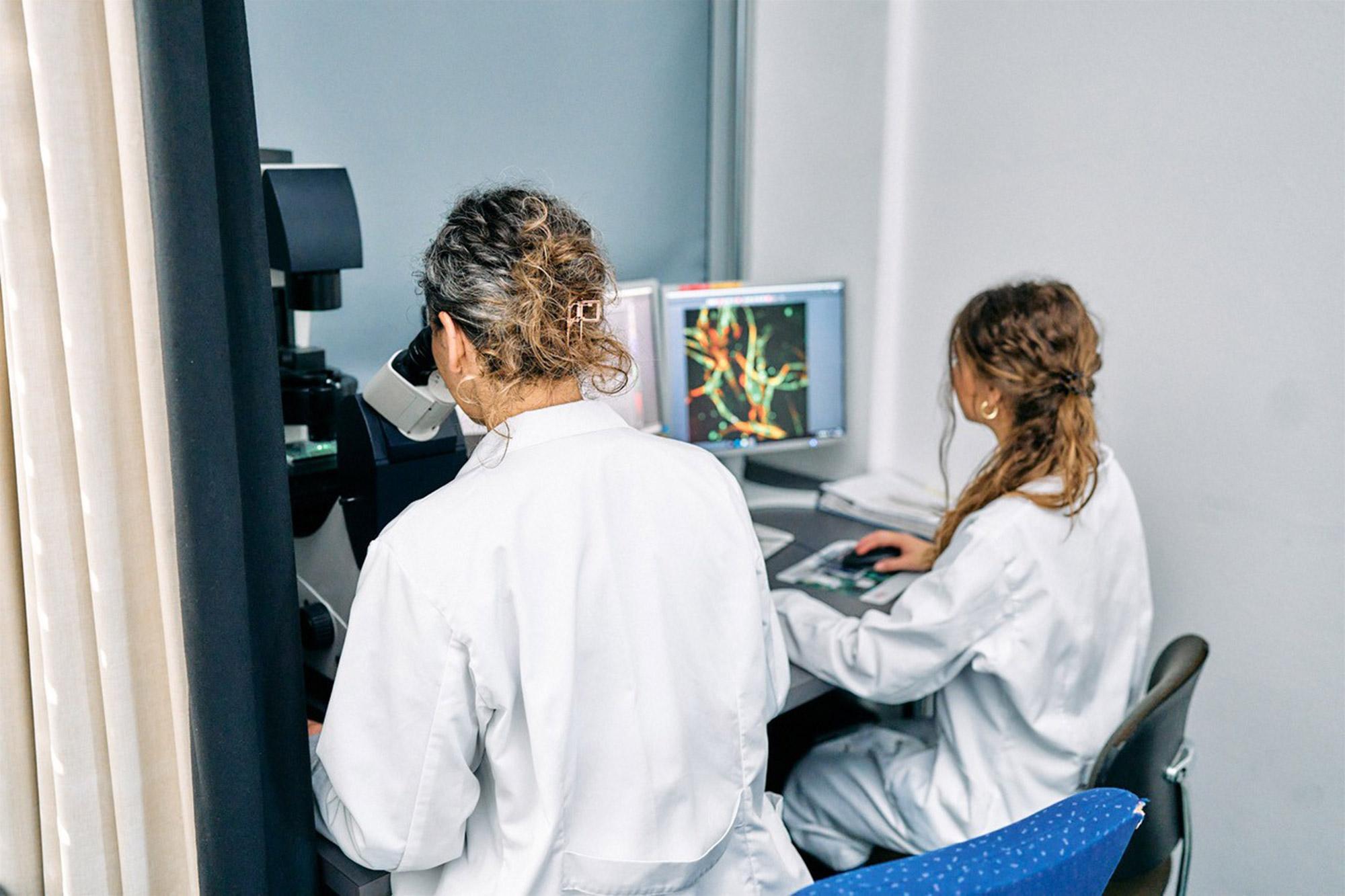Stimuli for the future of research with animals

On 27 November, NRP 79 is organising a symposium in Bern on the future of animal experimentation and 3Rs research in Switzerland. Ahead of the event, Herwig Grimm explains how science is contributing to the public debate.
What might the future of animal experimentation look like in Switzerland? What strategies are there, and what are their advantages and drawbacks? What action are the EU and the US taking in this area and what implications will that have for Switzerland? On 27 November, the NRP 79 is organising a scientific symposium in Bern on the future of animal experimentation and 3R research in Switzerland. The event will bring together Swiss and international experts from research, public sector agencies, politics, industry and NGOs.
Ahead of the symposium, Herwig Grimm, president of the NRP 79 Steering Committee, gives his take on current developments around animal experimentation and outlines the contribution that science can make to an informed public debate.
Herwig Grimm, what makes the symposium on 27 November particularly relevant now – to Switzerland but also in the international context?
It is clear that the debate around animal experiments has shifted – both here in Switzerland and internationally. In the United States, the Food and Drug Administration FDA is planning to phase out the mandatory animal testing in the development of monoclonal antibody therapies and other drugs. In the EU, a roadmap is being developed towards phasing out animal testing. Meanwhile, the Netherlands is investing 125 million euros in the transition to animal-free innovation methods through the Dutch National Growth Fund. And here in Switzerland, the next popular initiative on a potential ban on animal experimentation is in the pipeline.
All these developments show that the question of what comes next for biomedical research is being asked with renewed urgency – including in Switzerland. The symposium on 27 November will provide a framework in which to seize on this momentum and to help shape the discussions about the research of the future.
What can the symposium on 27 November achieve?
Animal experimentation is a multi-layered and socially contentious topic. Through the symposium we want to provide an overview of the current possibilities, challenges and future scenarios – on the basis of the findings from NRP 79 to date and on the knowledge of proven experts in the field. In this way we will be picking up on the core objective of this NRP – to reflect on issues that are relevant to society in an evidence-based and interdisciplinary way with an eye on the latest developments – and therefore to play an active part in the debate.
To what extent can scientific evidence influence decision-making processes in politics and society – particularly on an emotionally charged topic like animal experimentation?
Precisely because the topic often leads to emotive and heated debates, thinking about different options for the future of research in a moderated setting is particularly welcome. Scientists generate knowledge – and policymakers decide where to go with it. To ensure that policy decisions can be made on a sound and robust basis, it is important to bring scientists and policymakers together to highlight what is at stake and what is possible under which circumstances. Ultimately it is political decisions that dictate the direction of travel. Scientists can help here by pointing out the potential desirable and undesirable consequences of these decisions and clarifying what conditions are needed to move forward.
What can the NRP 79 contribute in concrete terms to the future direction of animal experimentation and 3R research in Switzerland?
I believe that after three years of research, the NRP 79 has already made it clear that discussions about the use of animals in science need to be more nuanced than they used to be. Simplistic yes-no answers don’t get us anywhere. A more constructive approach is to identify specific areas where there is potential for animal-free research – and to develop context-specific and effective strategies there. One example of this is the EU-wide ban on the testing of cosmetic products on animals. This has essentially been successful. Its success has been down to a combination of political will, scientific alternatives, and advocacy efforts by organisations.
What topics are broadly accepted in the science community but still meet with resistance in society?
Here, too, I don’t think a simple answer will do justice to the complexity of the topic. Knowledge and science is no longer held in particularly high regard by large sections of the population – if not to say increasingly disregarded. On the other hand, Switzerland has set itself the target – for example through the concept of ‘animal dignity’ and ambitious animal welfare legislation – to ensure that animals are only used for other purposes and subjected to stress in exceptional cases.
I think the interplay of these two developments – dwindling trust in science and increasing awareness of the legally-protected intrinsic worth of animals – explains the sometimes very emotive debate better than an argument solely based on the ethics of animal welfare. In this respect, animal experimentation is also becoming a proxy debate for wider questions about the role of science in society and about its value in relation to other objectives such as animal welfare.
In which areas do you see the greatest need for action in Switzerland in the coming years?
A key need for action is designing a framework that supports interdisciplinary 3R research structurally and in the long term. This field of research needs to appeal to scientists, and part of that also involves career paths. What’s more, 3R research shouldn’t be too narrowly defined – scientific innovation, implementation strategies and public debate should be linked up in a systematic and scientific way. The NRP 79 already shows that this can work.
Further information and updates on the projects are available on the official NRP 79 website, via the Newsletter and on social media.
